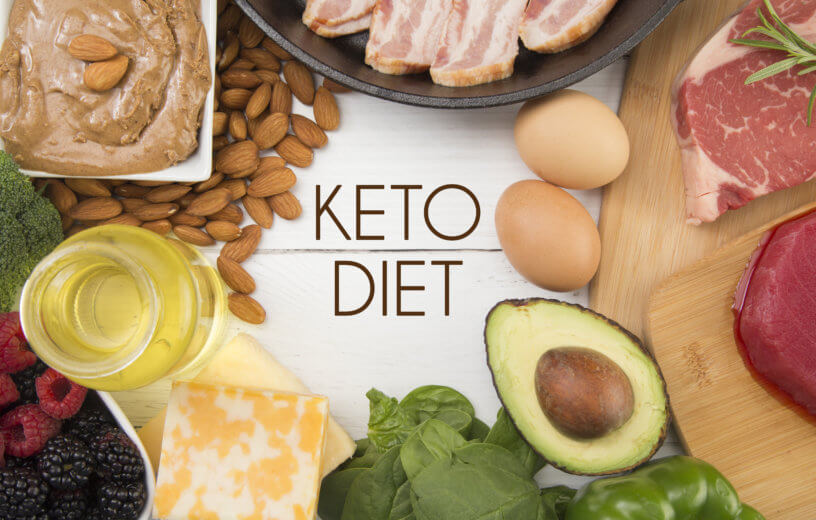NEW ORLEANS — Trendy keto and paleo diets rank among the worst for you nutritiously — and environmentally, a new study says. Researchers from Tulane University find that pescatarians, who primarily stick to fish, fare best health-wise, with vegetarians and vegans following closely behind.
People who use keto diets cut out carbs such as bread, pasta, potatoes, or rice, and eat plenty of protein instead. It puts the body into a state where it relies on fat for energy (ketosis) that occurs during starvation or fasting. The paleo diet only comprises foods which could have been hunted, fished, or gathered during caveman days. These include meat, fish, eggs, nuts, seeds, fruit, vegetables, herbs, and spices.
Both trendy diets cut out processed products like cakes, pastries, biscuits, and chips. Many celebrities including Gwyneth Paltrow, Halle Berry, and Kim Kardashian have all tried the keto diet, while Miley Cyrus and actress Uma Thurman have tried the paleo diet.
“We suspected the negative climate impacts because they’re meat-centric, but no one had really compared all these diets – as they are chosen by individuals, instead of prescribed by experts – to each other using a common framework,” says senior author Professor Diego Rose of Tulane University in a media release.
These popular diets have a fewest vitamins
Unfortunately for those trying these diets, the first study of its kind finds the keto and paleo contain the least vitamins. The keto and paleo diets also have the highest carbon footprints, generating almost three and 2.6 kg of carbon dioxide for every 1,000 calories consumed, respectively.
Researchers find that a vegan diet is least impactful on climate at 0.7 kg — less than a quarter of the emissions of the keto diet. The vegetarian and pescatarian diets follow in terms of their eco-friendliness.
The study in The American Journal of Clinical Nutrition is based on a survey of more than 16,000 adults across the United States. Individual diets were assigned point values based on the federal Healthy Eating Index. Average scores were calculated for those eating each type of diet.

Omnivores – who eat meat and vegetables – were the most common group, represented by 86 percent of participants. They sat squarely in the middle of the pack for both quality and sustainability.
Study authors note that if a third of the participants became vegetarian for any given day, on average, it would be equivalent to eliminating 340 million passenger vehicle miles. When they opted for the plant-favored Mediterranean or fatty meat-limiting DASH diet versions, both carbon footprints and nutritional quality scores improved.
“Climate change is arguably one of the most pressing problems of our time, and a lot of people are interested in moving to a plant- based diet,” Rose says. “Based on our results, that would reduce your footprint and be generally healthy. Our research also shows there’s a way to improve your health and footprint without giving up meat entirely.”
Meat production is a major contributor to climate change
The United Nations says a third of greenhouse gas emissions come from the food industry. Beef, in particular, is responsible for up to 10 times more emissions than the chicken industry, and over 20 times more than nut production.
Prof. Rose says the study is important because “it considers how individuals select popular diets that are composed of a wide variety of foods.”
Going forward, the professor still has questions about how to encourage eating habits that are better for people and the planet.
“I think the next question is how would different policies affect outcomes and how could those move us toward healthier, more environmentally friendly diets?” Prof. Rose concludes.
South West News Service writer Mark Waghorn contributed to this report.


I couldn’t agree more. Good luck finding a dietician who recommends these low carb keto type plans; they know that eliminating nutrient dense fiber-rich whole grains, fruits, and many vegetables from one’s diet is not a healthy choice. Ketosis is an unnatural state that takes the body out of homeostasis; carbs are the human body’s preferred fuel for energy to work and play.
Besides, the cultivation of grains made permanent settlements and civilization possible. Were it not for grains and starchy vegetables like corn and potatoes, modern humankind would still be squatting in the dirt somewhere trying to dig grubs out from under rotting tree bark with a sharpened stick.
I was able to easily lose weight on a low-carb diet while still eating plenty of vegetables — and fat and protein. I reversed Type 2 diabetes EASILY by following this diet. This article seems to point to avoiding this diet more for climate change which many believe is a political hoax — and not HEALTH. Ridiculous!!